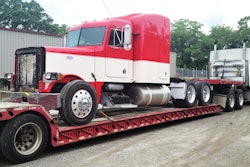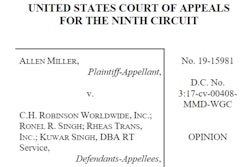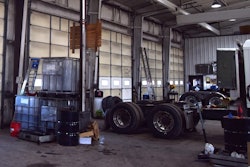The Overhaul company's Intelligence and Response Team recently sent out an alert to media and subscribers to its location tracking and security services about yet another double-brokering scam wasn't just a form of skimming a small piece of the load's payment out of what might otherwise be a legitimate freight transaction. Rather, the company noted, "an active cargo theft crew operating out of the Greater Los Angeles and Inland Empire areas" in California has started targeting loads for physical theft through so-called "strategic" methods.
Specifically, the theft starts with either "fraudulent" or "stolen carrier and driver identities" obtaining freight from a legitimate broker on a load "before double- or even triple-brokering through other trucking companies, some legitimate, some not," the company noted, elaborating on an August notice Overhaul had sent out about the ring's methods.
[Related: SoCal cargo theft ring adopts tricky new methods]
Speaking last week, Scott Cornell, the Transportation Lead and Crime and Theft Specialist at Travelers Insurance, emphasized that one of the reasons thieves are adopting this method is to attempt to put as much distance between themselves and the physical load before ultimately taking control of it through various methods of subterfuge.
Cornell will be familiar to regular Overdrive readers from his contribution this year to feature reporting on cargo theft prevention and his company's sting trailer, used by law enforcement on loan around the country the last decade and more.
He elaborated on three scenarios he's seen and how they play out:
1. Thieves take advantage of an already double-brokered load. In this scenario, Broker A with an otherwise solid carrier-vetting strategy contracts with a legitimate Carrier A to move a load. Yet: There is no prohibition in the broker's contract with the carrier that prevents the carrier from re-brokering that load. When Carrier A does just that as Broker B, and posts the load to a board, he/she's doing so without the same robust vetting process as Broker A. Enter fraudulent Carrier B, a cargo thief posing as a carrier, possibly even set up and federally authorized as one or using a stolen identity. When Carrier A/Broker B now "gets scammed" and the freight goes missing, Cornell said, all parties are "in a bad spot" with the shipper.









